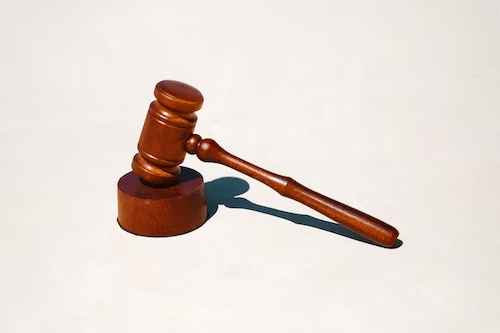
Personal injury law is a legal field that deals with cases where an individual suffers harm or injury due to someone else’s negligence or intentional actions. When such incidents occur, the injured party may seek compensation for their damages through a personal injury claim. One critical aspect of this process is the settlement process. Understanding the settlement process is crucial for the injured party and the defendant. It can help them reach a fair and reasonable agreement that adequately compensates the injured party while protecting the defendant’s interests. In this article, we will delve deeper into the settlement process in personal injury law and the roles of each party in it.
1. Seek Legal Counsel
Working with an experienced personal injury attorney is essential to maximize the chances of achieving a fair outcome from your case. It’s not easy to navigate the complexities of legal proceedings on one’s own, so with the help of Manhattan personal injury legal experts, you can rest assured that your case is being handled with the highest possible level of skill, experience, and dedication. A lawyer who gives wise counsel from start to finish is ideal – rest assured that if you find the right person to handle your case, they’ll take the necessary steps to ensure you receive proper compensation.
2. Document Your Damages
If you’ve suffered an injury due to the negligence of another party, you’re entitled to fair compensation for your losses as a result. It’s up to you to ensure that your damages are appropriately documented before presenting them to your attorney. Medical bills, lost wages, and other related expenses should be well organized to assess their total cost.

This will show that your damages have objectively and accurately been calculated. Documenting your damages is essential when obtaining compensation for the harm you have endured; therefore, ensure that all of your evidence has been securely gathered and stored for reference if needed.
3. Understand the Strength of Your Case
Knowing the strength of your case is fundamental to achieving a fair and reasonable resolution. With the help of an experienced lawyer, you can accurately gauge how solid your position is relative to any proposed settlements or if the better decision is to move forward with a trial. If there’s a compelling—and perhaps unassailable—argument in your favor, this may give you bargaining power and result in an improved settlement figure offered by the opposing party.
Ultimately, it’s important to consider all angles when weighing up what’s best for you and your situation. Careful consideration must be given to each option before deciding on the best outcome for everyone involved.
4. Negotiate Wisely
The negotiation process is a fundamental part of the settlement process in personal injury law. It’s important to remember that you are not alone; your lawyer will be there to provide advice, support, and guidance as you negotiate directly with the opposing party or their insurance company.
A large part of successful negotiations is understanding what each side seeks. Your lawyer will be able to explain the legal ramifications of any settlement agreement and ensure that your rights are fully protected. With their help, you can approach negotiations strategically and aim for a fair outcome that adequately reflects your losses.
5. Read and Understand the Settlement Agreement
As a party involved in a dispute, signing a settlement agreement is no small matter. That’s why it’s essential to put aside enough time to read and understand the agreement in full before signing it–even if you have the help of an attorney or advocate. Ask questions until you feel comfortable with the agreement’s provisions and any legal terms used within it.
It’s also important to ensure that the agreement adequately compensates you and doesn’t contain clauses that might cause grief or financial losses down the road. Don’t rush your decision; taking the time to read and understand each term of your settlement agreement will ultimately benefit you in the long run.
6. Trial
You may need to proceed with a trial if your claim cannot be resolved through settlement negotiations. In these situations, it’s best to consult with a lawyer who has experience in litigation and can provide you with sound advice on the proceedings. Trials are complex and require skillful preparation and presentation of evidence; this is where an experienced personal injury lawyer can be invaluable. Your attorney will know the ins and outs of the court system, which means they can better prepare you for each step involved in a trial so that you have the best chance of obtaining a favorable outcome.
All in all, the personal injury settlement process can be a stressful time for both parties involved. Following these steps and having an experienced lawyer can help ensure a fair and equitable outcome that fully reflects your losses. The right legal representation can make all the difference in obtaining justice, so remember this if you ever find yourself in this unfortunate situation.


































